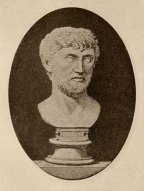Information – Open to All
Poggio Bracciolini enjoyed great privilege as a 15th Century papal secretary. He was a scholar and humanist and his handwriting style developed into Roman type, a font still popular today. However perhaps his greatest legacy was that of discovering Roman poet Lucretius’s classical work De Rerum Natura (On the Nature of the Universe) in 1417. Lucretius’s masterpiece consisted of six untitled books that were hidden behind locked doors within a German monastery; locked away for six hundred years until rediscovered by Bracciolini. Locked away to ensure only elites had access to Lucretius’s work of art because his epicurean views were considered by some to be too provocative, if not outright dangerous.
Locking away information has been until relatively recently, a common practice. In many ways, most citizens of the world had limited access to facts, information and knowledge like those scribed by Lucretius1. Books and scrolls were carefully hidden for few to access. Knowledge was meant for those of privilege and not for the masses. For several reasons, Bracciolini dedicated much of his life to finding, copying and more broadly, sharing information. Fortunately for us, access to information has been made much easier than what Bracciolini and others had to endure.
Relative to the days of Bracciolini, individuals and associations no longer hold special access to information. Our world has changed to the point where we now ridicule those who believe they best serve their citizens by limiting access to data, facts, information and knowledge. This has been a slow evolution however in many ways, our world changed most dramatically on Christmas Day in 1990. It was that day the world was given the ability to be their own 21st Century Poggio Bracciolini.
And Our World Changed
December 25, 1990 was the day the network of knowledge was launched by Sir Tim Berners-Lee. This was the day “TimBL” invented the World Wide Web (WWW) and in doing so, opened the doors to our own modern-day monasteries of knowledge. The gift of the World Wide Web has ensured that anyone who has access to a web browser also has access to a trillion pages of information, facts and beliefs.
David Weinberger (Berkman Center for the Internet and Society) shared this perspective in his brilliant book, “Too Big to Know”. In it, Weinberger wrote, “Knowledge is becoming a property of the network, rather than of individuals who know things, of objects that contain knowledge, and of the traditional institutions that facilitate knowledge”. Thanks to TimBL and many subsequent innovators, to a great degree information is now open for many to access (albeit some would still say not open yet enough).
Clearly, there is an abundance of information via the WWW. Yet, Weinberger would also suggest that we also had an abundance of information in books over the years that for the most part were not widely read. Specifically he states, “We thought that knowledge was scarce, when in fact it was just that our shelves were small”. The challenge we face today is to transform an abundance of information to a profusion of knowledge.
What I have come to realize is that there is an opportunity for us to not only access information but also to create and share this information with others to enhance knowledge. One way we are doing this is by becoming the producers and distributors of information content. There are many ways we can share this information and one of the most powerful ways is through social media. Social media affords us the opportunity to connect with individuals and allows us to share relevant data and facts and perspectives and information. Social media allows us to collaborate and construct and critique. Social media is a platform upon which data becomes information and perhaps, thereafter knowledge.
Social Media & Where Twitter Trumps Television
The number of social media websites continues to grow. Facebook, MySpace, LinkedIn, Google Plus+, DeviantArt, Pinterest, LiveJournal, Renren (人人网), and of course many others. However, there is one social media platform that in my view currently trumps the others; San Francisco-based Twitter.
Created in 2006, Twitter is a social media networking and micro-blogging service that appears to now have over ½ billion users. Twitter is a scalable communication tool as well as what I would describe as a knowledge and learning facilitator. I find Twitter most useful because it is the user who determines how many and what kind of people (and therefore information) she may want to follow. One provocateur Rocco Pendola suggests Twitter “is everything the television news networks wish they could be – instant, relevant and used heavily by a relatively young audience”. Further, I find Twitter provides three key attributes:
- Communication – As President, I admit my bias; that of an unabashed champion for Algonquin students, staff, and faculty and of course the College itself. Twitter provides a platform for me to share my views and perspectives and gives me the opportunity to communicate the incredible things people are doing at and for Algonquin.
- Education – As an educator, Twitter affords me the opportunity to share information that I think is relevant and interesting. In my view, education has been a relatively closed shop for most people. As educators, we must be more open to sharing of ideas, content and perspectives. Twitter does this exceptionally well.
- Learning – As a lifelong learner, Twitter provides a remarkable platform to remain connected with individuals or institutions who share relevant advice and insight. I limit myself to following less that 50 people at any one time. This seems to give me the time to read and review most Twitter postings (I still struggle with the term tweet). I admit that I may have to increase those I follow to 75-100 as there are simply so many excellent sites/users with great insights from whom to learn.
Social Media at Algonquin
At Algonquin, many of us have come to realize the power of social media. I have had a Twitter account since 2008. More importantly, hundreds of staff, faculty, governors and students have also come to embrace a range of social media platforms including Twitter. Many of us view these platforms as tools to engage students, share ideas with colleagues and learn from thought leaders around the world.
At Algonquin we have been very fortunate to have a student body that is tech-savvy and has responded very positively to the idea of interacting with their College using social media. Over the past few years, this interaction has grown to the point where Algonquin is one of the first Canadian colleges to recruit a communications officer who has a focus on social media. His role has been specifically designed to maintain and grow our social media communities; efforts that have yielded great value from a client service and information perspective (I also believe it has helped us further widen access for those who are interested in studying at Algonquin). Today, Algonquin is proud to be the most influential Canadian college on social media as ranked by Klout.com.
Algonquin’s success using Twitter as a social medium is due to the fact that we have governors, staff, faculty, students, athletics coaches, administrators et al who are committed to communicating within this medium. I suspect that this will continue and will likely grow in its popularity and importance.
Certainly there are challenges to individuals and to organizations in going down this path (See my next blog: Social Media – Opening Knowledge (Part 2). However, we have gone beyond the point where information is locked behind closed doors. The doors to knowledge are widening and we must find ways to share this information. I am quite certain Poggio Bracciolini would be proud of Algonquin College and our efforts to open knowledge to the masses. Twitter and other social media sites allow us to do so in a much easier and more effective way!
KMD
1. Lucretius’ work is beautifully presented in Stephen Greenblatt’s “The Swerve”, winner of the 2012 Pulitzer Prize for nonfiction.
2. Many thought leaders influence my perspectives. In the case of this blog, I have been particularly struck by the insight of David Weinberger. I recommend for reading: Weinberger, D. (2011). Too big to know: Rethinking knowledge now that the facts aren’t the facts, experts are everywhere, and the smartest person in the room is the room. Basic Books: New York.





Have you considered creating lists on Twitter? This allows you to group people together and get a snapshot of what they are saying.
It is a good idea Steph… Will do. KMD
Pingback: Great Reads in 2013 (Part 1) | Kent MacDonald